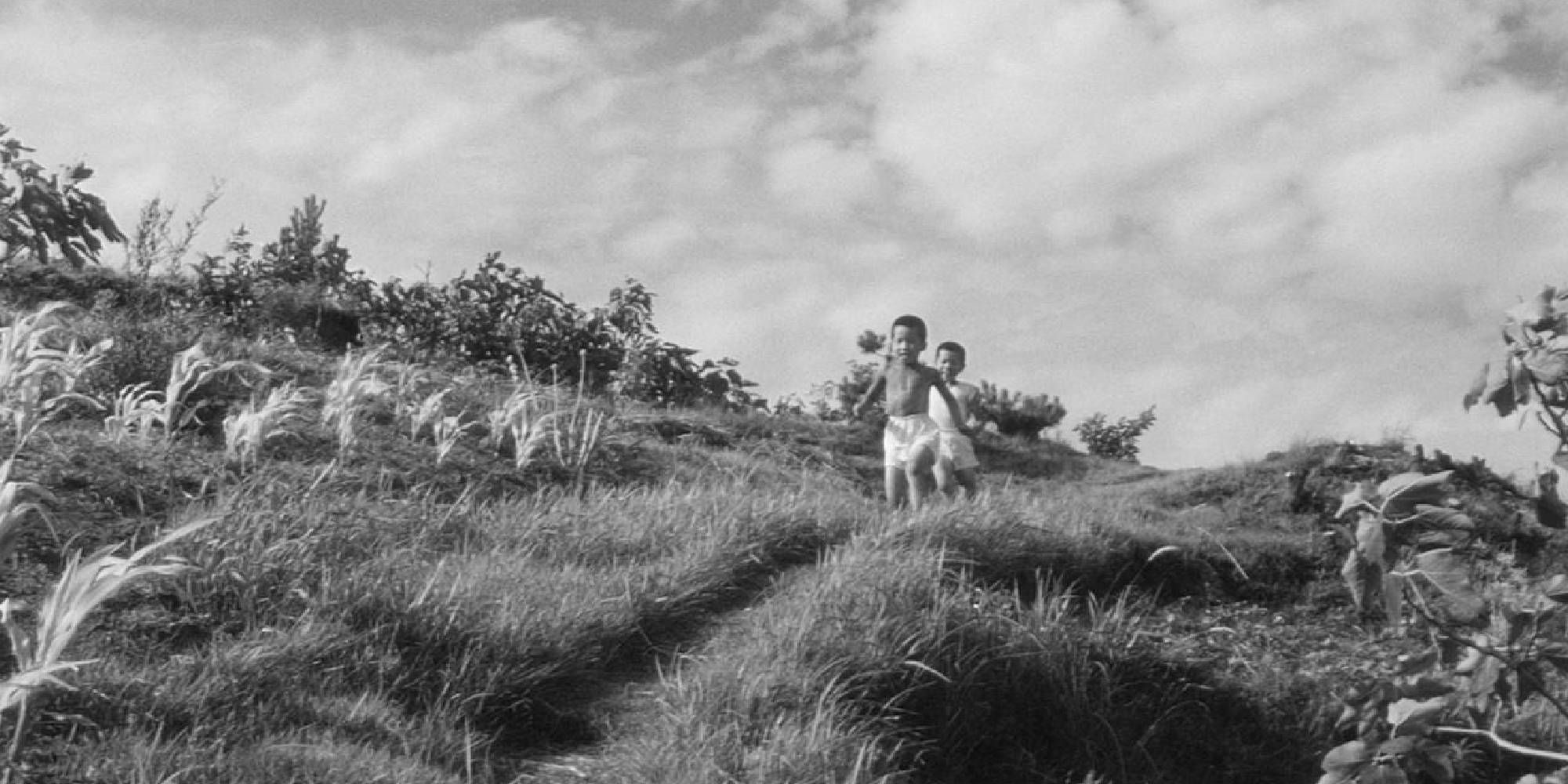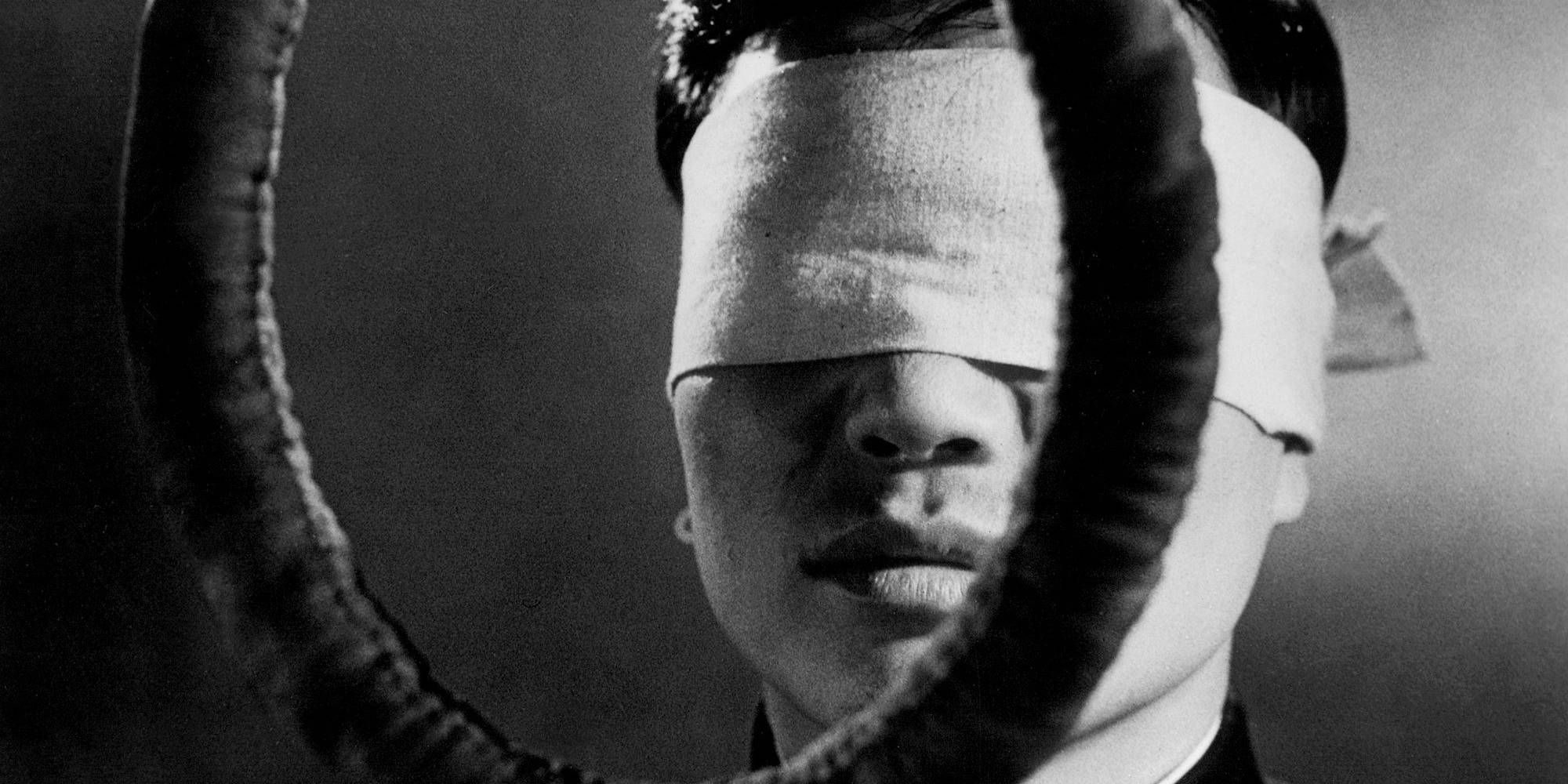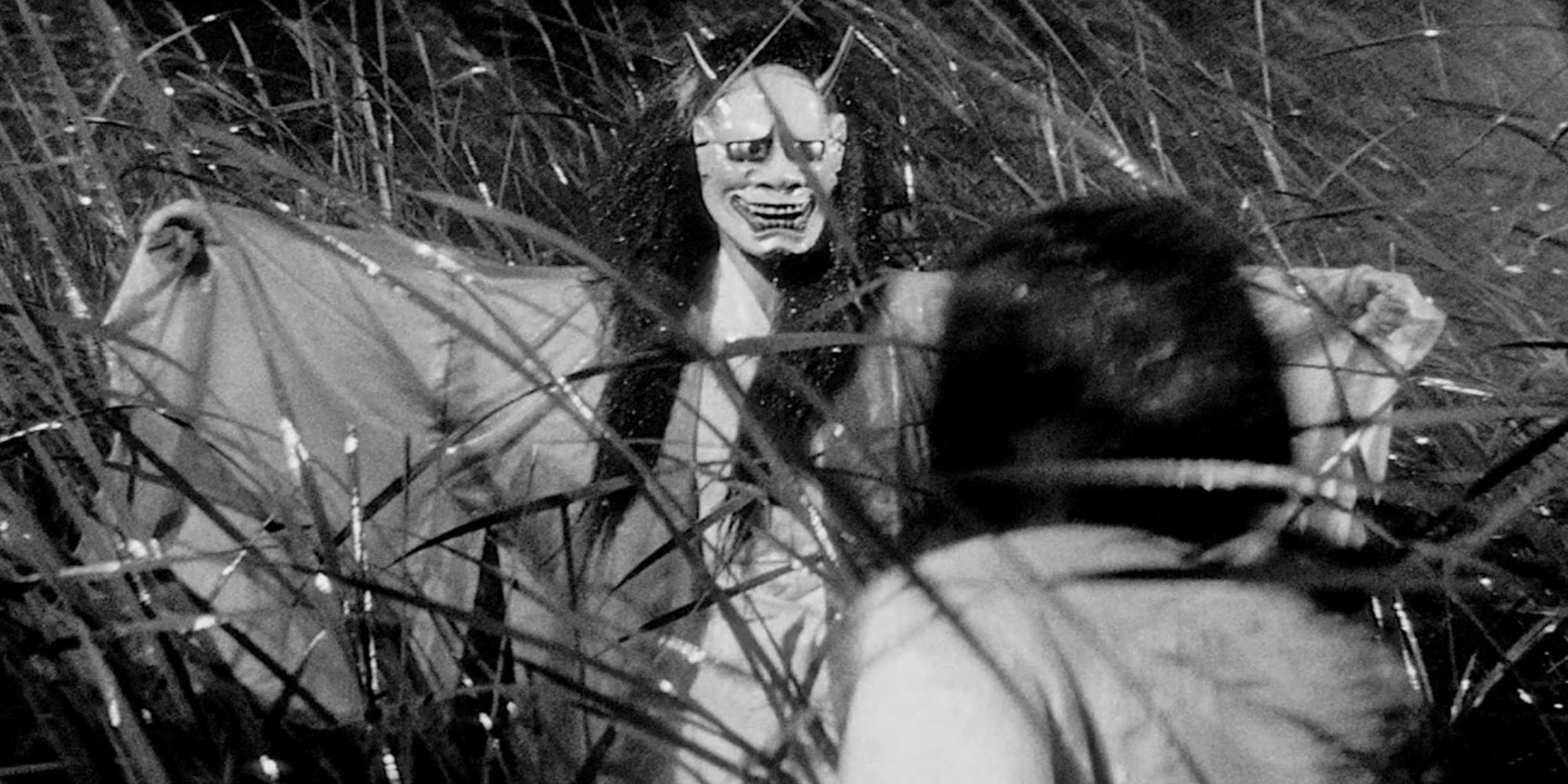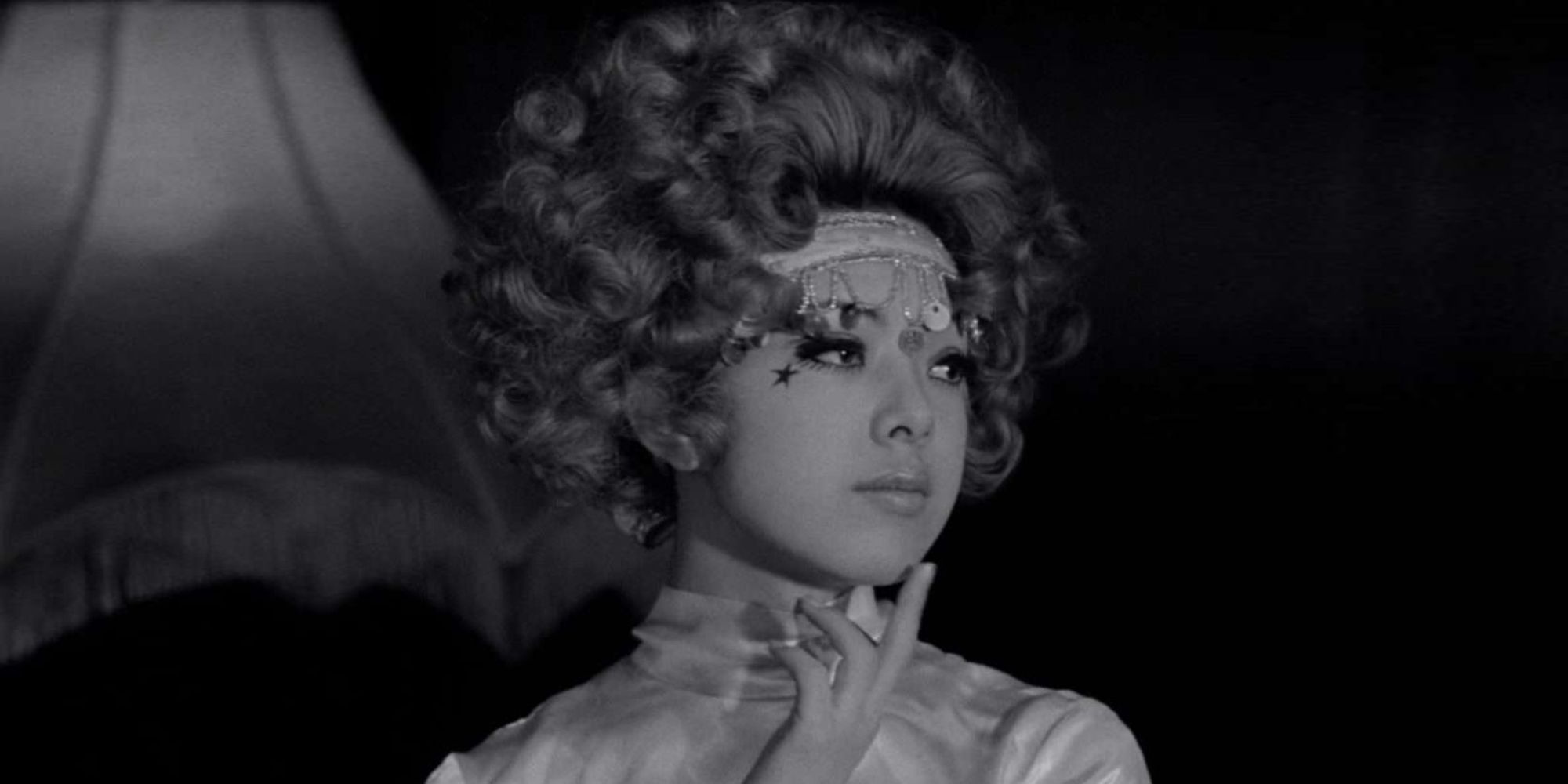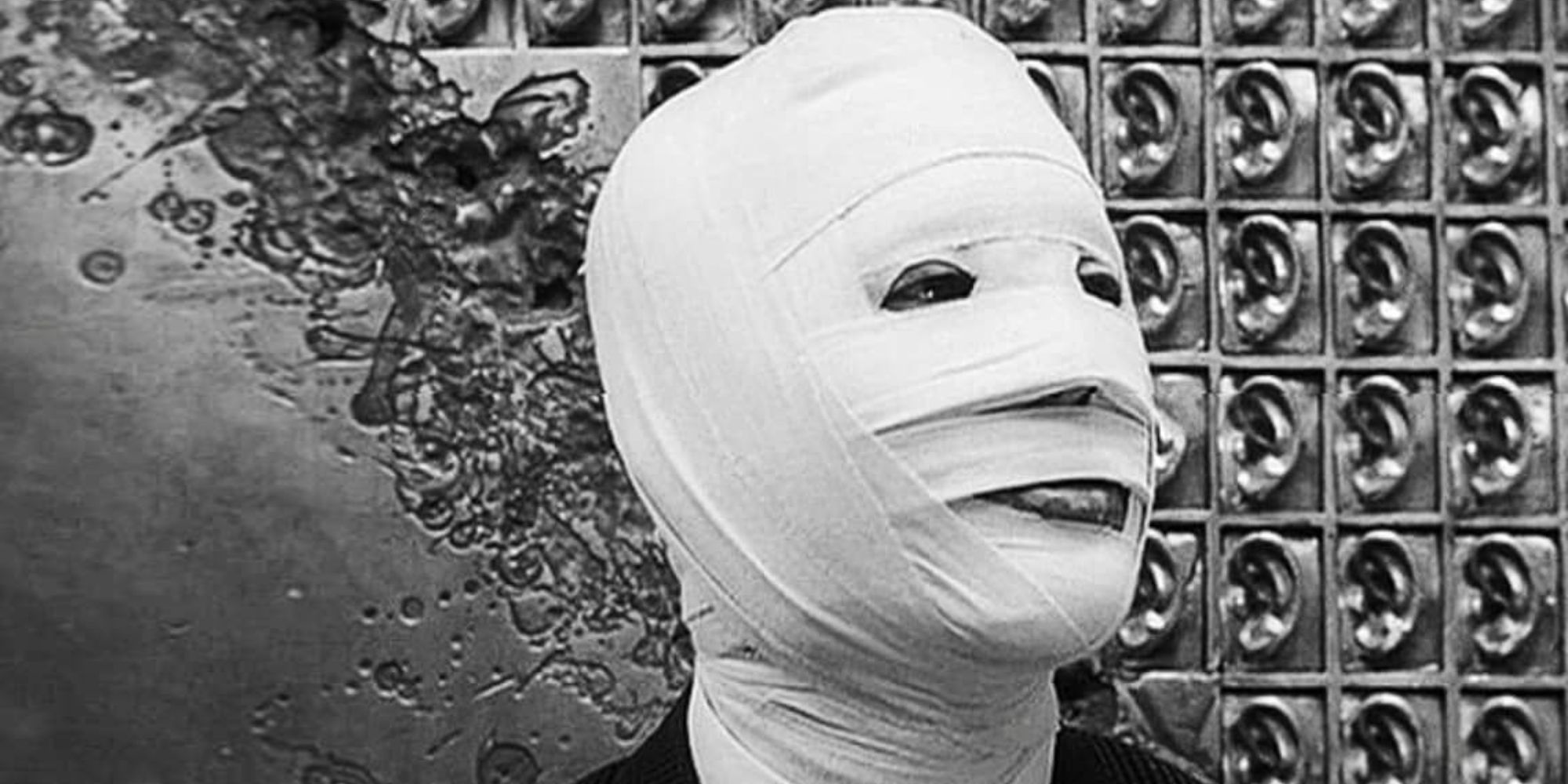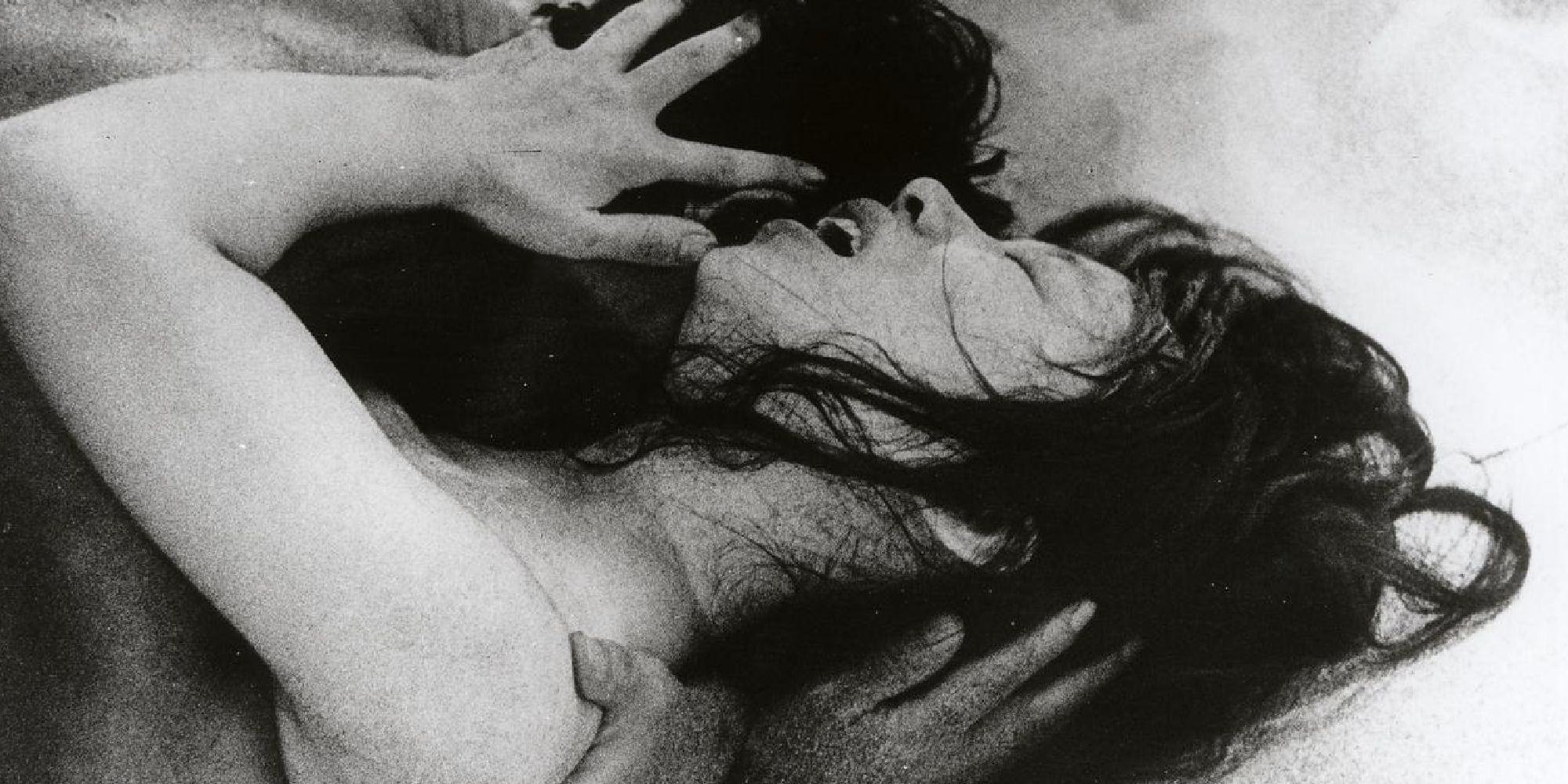Film has a few critical and unforgettable periods, and the pivotal Japanese New Wave, happening from 1950 to 1976, was exceptionally enriching and helped shape cinema history. As likely anticipated, it concentrates on taboo subjects, such as violence and radicalism, through its experimental and unconventional storytelling.
While many are familiar with European film movements such as the French New Wave, the Japanese Nūberu bāgu is equally intriguing and groundbreaking, and ultimately resulted in some of Japan’s most unforgettable features with great impact worldwide. From The Naked Island to Woman in the Dunes, we look back at some of the best Japanese New Wave movies every film fan should check out at least once.
10 ‘The Naked Island’ (1960)
Director: Kaneto Shindô
Centering around a small family consisting of a husband and wife with two sons (Nobuko Otowa, Taiki Tonoyama, Shinji Tanaka, Masanori Horimoto) struggling to navigate their lives on a tiny island in the Seto Inland Sea in Hiroshima, The Naked Island is a slice-of-life type of feature that sheds light on the family’s obstacles and challenges on the face of adversity.
Kaneto Shindô‘s poetic film has almost no spoken dialogue, but that doesn’t make it any less great: in fact, it just proves that a movie’s greatness is not entirely dependent on this specific aspect. Fans of existentialist and humanist stories will probably enjoy Shindô’s impeccable efforts, as the masterfully directed movie meditates on the cycle of life and work, highlighting the importance of endurance among life’s tests in the meantime.
9 ‘Eros + Massacre’ (1969)
Director: Yoshishige Yoshida
Two interconnected stories are intriguingly illustrated in Eros + Massacre, a Japanese biographical drama that ranks among the best from the Japanese New Wave. The movie follows anarchist Ōsugi Sakae and illustrates his relationship with three women: his wife Yasuko Hori, his militant feminist lover Itsuko Masoka (inspired by Ichiko Kamichika), and his third lover Itō Noe. Meanwhile, audiences also get a glimpse of two 1960s students researching Osugi’s theories.
From the mind of one of Japan’s most renowned directors, Yoshishige Yoshida‘s Eros + Massacre is certainly essential when it comes to the genre. Additionally, it also makes for a culturally rich feature, as it provides viewers with a compelling depiction of the real-life anarchist who was murdered by the Japanese military police in 1923. Despite its long runtime of 3 hours and a half, this epic arthouse movie is still quite enjoyable with breathtaking visuals.
8 ‘Death by Hanging’ (1968)
Director: Nagisa Ōshima
Shot in a documentary-like format, Death by Hanging sees an ethnic Korean man known only as R (Do-yun Yu) — a character loosely based on the real-life Ri Chin’u, a student who murdered two Japanese school girls in 1958 — sentenced to death by hanging only to survive the execution but losing his memory in the process. In the following two hours, those responsible for his execution attempt to work out how to handle the situation: they must persuade him to embrace guilt by reminding him of his crimes.
Nagisa Ōshima‘s groundbreaking film surrounding the death penalty in Japan is an intriguing picture of guilt, systematic prejudice, and identity. Technically, it is a cinematic landmark and is often praised for its Brechtian techniques. Audiences who are enthralled by dark films with twisted premises may want to give the Japanese New Wave Death by Hanging a shot.
7 ‘Throw Away Your Books, Rally in the Streets’ (1971)
Director: Shūji Terayama
This psychedelic, experimental drama by Shūji Terayama centers around an angsty teen (Eimei Sasaki) from a dysfunctional family that includes a shoplifter grandmother and a war criminal father. The nameless protagonist navigates through life after hitting the streets. While he explores the real world, Eimei Sasaki‘s character is inevitably disillusioned with the world around him.
This trailblazing feature may not be known worldwide, but its impact on cinema is undeniable. When it comes to the Japanese New Wave, Throw Away Your Books, Rally in the Streets is undeniably a mandatory watch. Aside from analyzing materialism in Japan among other interesting sociocultural topics, Terayama‘s movie also benefits from an incredible score and a thoroughly absorbing premise. It is a provocative, ahead-of-its-time watch that anyone who is getting into Japanese film should check out.
6 ‘Pastoral: To Die in the Country’ (1974)
Director: Shūji Terayama
Also known as Pastoral Hide and Seek, this Japanese drama set in a bizarre village in Aomori Prefecture at the foot of the Scary Mountain centers around a 15-year-old boy’s unconventional coming-of-age and his quest to find a way out of his hometown. Through a film within a film structure, director Shūji Terayama examines his childhood memories and attempts to translate them to the big screen.
Pastoral: To Die in the Country is mandatory viewing in the Japanese New Wave genre, as it has had a huge impact on Japanese art and the avant-garde movement, and endures landmark in cinema today. Masterfully directed by a frequently overlooked director, this visionary film sheds light on themes of childhood in a compelling surrealist manner.
5 ‘Demons’ (1971)
Director: Toshio Matsumoto
Toshio Matsumoto‘s Demons is a captivating meditation about revenge and selfishness. The plot is as follows: Gengobe Satsuma (Katsuo Nakamura), an exiled samurai, is given a second chance to become the 48th Ronin against the Shogunate. His servant gathers the 100 ryo required for his acceptance. However, Gengobe is in love with a greedy geisha named Koman (Yasuko Sanjo). To keep her, he must pay her debt of 100 ryo.
Demons is not your usual Samurai story, and that is what makes it stand out from the rest. Matsumoto’s movie is dark, both literally and figuratively speaking, providing audiences with an utterly captivating vengeance story. Demons‘ unsettling narrative, in addition to the movie’s astounding technical achievements such as the incredible editing and style, certainly make it a must-see Japanese flick.
4 ‘Onibaba’ (1964)
Director: Kaneto Shindô
The daring Onibaba is a blueprint in Japanese cinema and film, with its legacy remaining intact. Kaneto Shindô‘s monochrome masterpiece, recommended by Willem Dafoe, follows two women (Noboku Otowa and Jitsuko Yoshimura) devastated after learning that Kichi, the son of one of the protagonists and the husband of the other, has died in war. Their lives are altered when one of them starts an affair with their neighbor and the other meets a mysterious samurai with a strange mask.
To this day, the almost poetic, medieval Japan-set Onibaba remains one of the best films about grief, betrayal, and envy whose story is elevated by the two three-dimensional female protagonists at its center. Kaneto Shindô’s film is not only a Japanese New Wave classic but also an incredible achievement in cinema that all movie enthusiasts should see at least once.
Onibaba
- Release Date
- November 21, 1964
- Cast
- Nobuko Otowa , Jitsuko Yoshimura , Kei Satō , Taiji Tonoyama
- Runtime
- 102 Minutes
3 ‘Funeral Parade of Roses’ (1969)
Director: Toshio Matsumoto
The second movie on this list directed by Matsumoto is the visually striking arthouse featureFuneral Parade of Roses, which was loosely adapted from Oedipus Rex. This late 1960s-set movie takes audiences to the nether regions of stunning Tokyo, introducing them to underground gay culture in the city while also depicting the trials of Eddie (Pîtâ) and other cross-dressers in Japan.
Funeral Parade of Roses is an experimental Japanese movie fit for all audiences, but naturally a particularly great fit for those who enjoy engrossing LGBTQ+-themed movies, as it has had an undeniable impact on queer cinema. Toshio Matsumoto’s gloriously progressive drama was ahead of its time when it was released, hence why it endures as a compelling Japanese New Wave watch.
2 ‘The Face of Another’ (1966)
Director: Hiroshi Teshigahara
Based on the novel of the same name by Kōbō Abe, The Face of Another centers around a businessman, Mr. Okuyama (TatsuyaNakadai), who suffers facial burns and disfigurements in a work-related accident and is given, by his doctor, a lifelike mask. However, things start getting complicated when the mask starts altering his personality.
Featuring horror elements, Hiroshi Teshigahara‘s philosophical and existentialist psychological thriller tale about identity and alienation is an entertaining art film that also works as a thought-provoking think-piece. Despite being an international critical and financial failure, the Japanese New Wave classic The Face of Another is now considered a required viewing when it comes to the cinematic movement and has cemented itself as one of the most intriguing projects from Japan.
1 ‘Woman in the Dunes’ (1964)
Director: Hiroshi Teshigahara
It would be a crime to finish this without mentioning the Woman in the Dunes directed by the trailblazing Teshigahara, too. The 1964 psychological thriller follows an entomologist, played by Eiji Okada, who is on vacation and persuaded into spending the night in a house at the bottom of the sandpit. Eventually, Niki is trapped into living with a woman (Kyôko Kishida) whose life-long task is shoveling sand for the villagers.
The poignant and allegorical Woman in the Dunes is a huge movie in Japan and worldwide, proving that the Japanese New Wave was an important movement in film history. Like The Face of Another, this must-watch movie meditates about alienation and the human condition, while simultaneously sending out messages about work. Critically wise, the Hiroshi Teshigahara film deservedly received widespread critical acclaim and was nominated for two Academy Awards.


